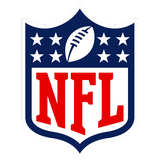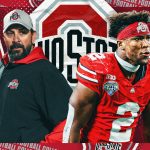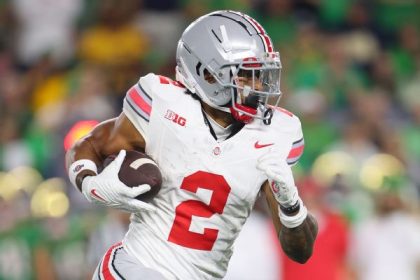“Culture” is the favorite buzzword of NFL executives and coaches when describing the environment that drives the success of their respective programs. Team builders routinely stand in front of microphones to tout their desire to find the right fits for their locker rooms when asked about potential free agents, draft additions and trade acquisitions.
In a people business, executives and coaches are obsessed with identifying and acquiring players who share the organization’s core values. With those sentiments and expectations frequently expressed in press conferences and splattered on walls throughout NFL facilities, it is hard to ignore the importance or emphasis on culture in the NFL.
That said, the recent release of the NFL Players Association’s “team report cards” has allowed the football world to see which teams’ actions matched their words.
The club reports resulted from a poll sampling more than 1,300 players who graded their respective NFL teams in eight categories. Players rated teams on a conventional educational scale from A-plus to F-minus in treatment of families, nutrition, weight room, strength staff, training room, training staff, locker room and travel.
ADVERTISEMENT
The individual and composite grades were accompanied by a thumbnail description that detailed the rationale behind the grades. On an aggregate basis, here’s how the teams were ranked:
- Minnesota Vikings
- Miami Dolphins
- Las Vegas Raiders
- Houston Texans
- Dallas Cowboys
- Green Bay Packers
- San Francisco 49ers
- New York Giants
- Buffalo Bills
- New Orleans Saints
- Seattle Seahawks
- Carolina Panthers
- Chicago Bears
- Philadelphia Eagles
- Detroit Lions
- Indianapolis Colts
- Baltimore Ravens
- Tennessee Titans
- New York Jets
- Denver Broncos
- Cleveland Browns
- Pittsburgh Steelers
- Atlanta Falcons
- New England Patriots
- Los Angeles Rams
- Tampa Bay Buccaneers
- Cincinnati Bengals
- Jacksonville Jaguars
- Kansas City Chiefs
- Los Angeles Chargers
- Arizona Cardinals
- Washington Commanders
While there appeared to be no direct correlation between the grades and on-field success, there is something to be said for the teams prioritizing their players’ well-being. Particularly, coaches who respected the players’ time and were willing to collaborate with them enjoyed more success.
For instance, the New York Giants’ resurgence is tied to Brian Daboll’s improved relationship with players compared to his predecessor, Joe Judge. The Minnesota Vikings’ improvement can also be attributed to Kevin O’Connell’s player-friendly coaching style resonating with players in his debut season. With Nick Sirianni also ranking as one of the most enjoyable coaches to play for, the Eagles’ rise as title contenders is tied to the coaches’ leadership style.
As free-agent prospects begin to consider potential destinations, the coach-player relationship is the most important aspect of the cultural fit. How well players relate to the team and how they treat their players matters. If winning is the priority for a free agent, the No. 1 goal is to find a coach who can improve the player’s skills while building a cohesive unit that works together in pursuit of a ring.
In addition to the coaching staff’s treatment of its players, the connection between players and the training staff and strength-and-conditioning coaches also played a key role in success. Individual attention and nurturing practices fortify the trust between players and a team. That also helps the team stay connected as players feel the commitment and accountability, and the coaches reciprocate trust.
Considering the importance and impact of relationships on the outcome of games, it is not surprising that the best teams prioritize connections between the players and support staff.
As a member of the Buffalo Bills following their four straight Super Bowl runs in the early 1990s, I vividly remember how Jim Kelly, Thurman Thomas, Andre Reed and Bruce Smith connected with everyone in the building. From the strength coaches to the training staff to the public relations team, the bond between elite players and the supporting cast played a role in their success.
Given owner Ralph Wilson’s generosity and relationship with the players, as evidenced by his frequent visits to the locker room and hand-delivered per-diem handshakes (Mr. Wilson personally handed out the cash for meals at mini-camp), the player-friendly culture was established at the top.
Though the facilities and amenities are essential, the players value how they are treated more than the shiny objects around the building. In a people business where relationships matter, the culture, not the cash, should drive free-agent decisions.
Bucky Brooks is an NFL analyst for FOX Sports. He appears on “Speak For Yourself” and also breaks down the game for NFL Network and as a cohost of the “Moving the Sticks” podcast. Follow him on Twitter @BuckyBrooks.
Top stories from FOX Sports:
NFL trending

Get more from National Football League Follow your favorites to get information about games, news and more












